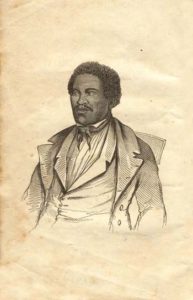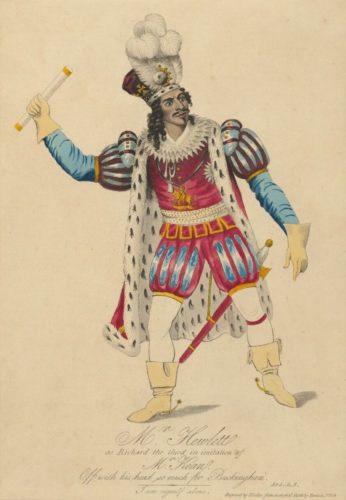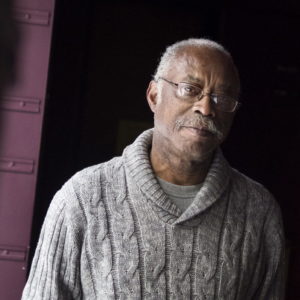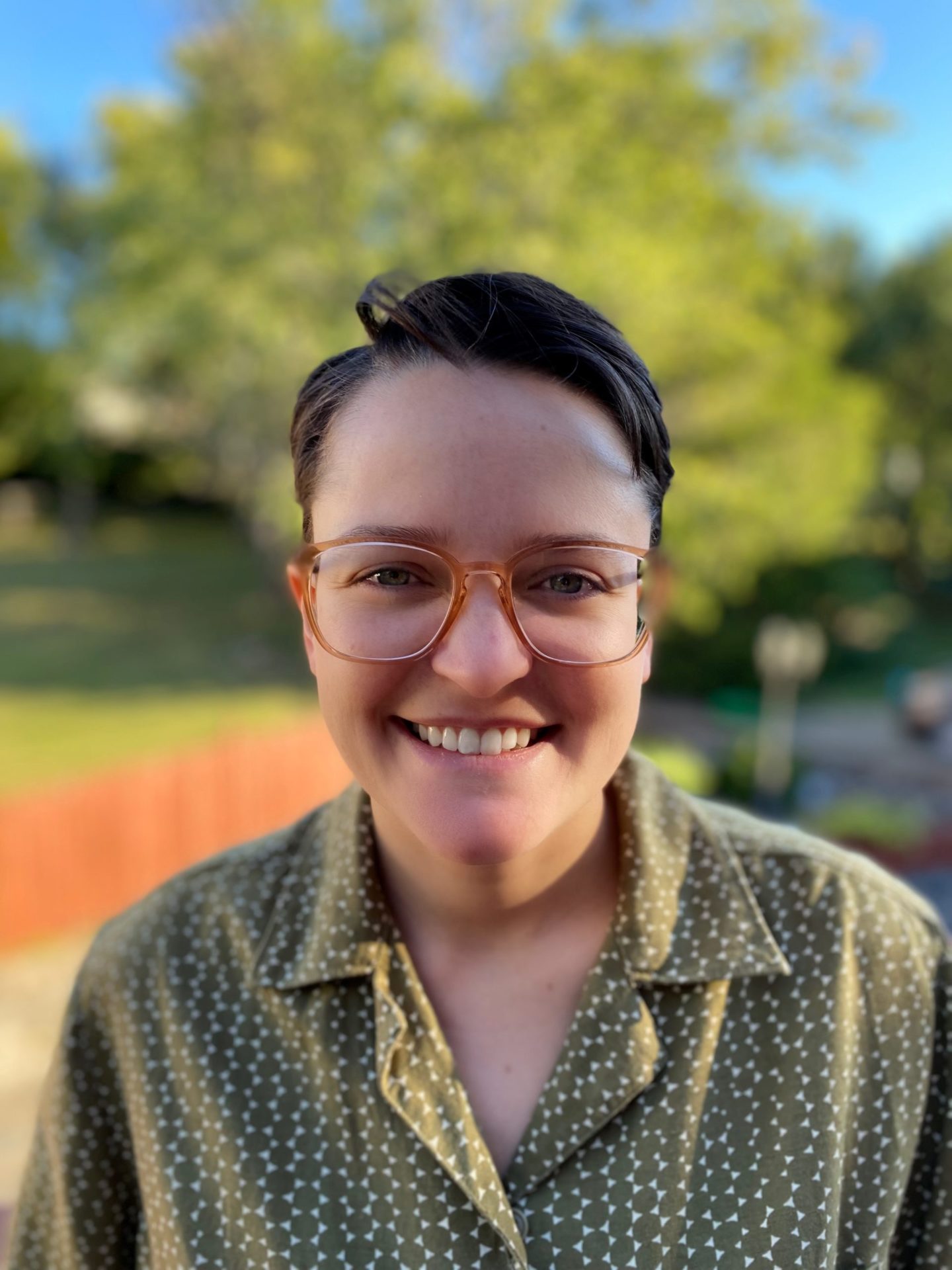The MCR Interview:
The African Company Presents Richard III: Interview with Director Lawrence James
Dr Lawrence James is directing a staged reading of The African Company Presents Richard III with the Nashville Shakespeare Festival at the Darkhorse Theatre February 22-24. This is a slightly edited transcription of his phone conversation with Grace Krenz on February 15, 2024.
Grace Krenz: When I first saw on the Nashville Shakespeare Festival website, The African Company Presents Richard III, I got very confused despite its clear title, because I was like, “is this the Nashville Shakespeare Festival or is it the African Company, which is in Nashville, presenting Richard III? Then I googled it and was like, “oh, it’s a play by Carlyle Brown and it sounds absolutely fascinating.” So, could you talk us through a little bit of the history?
LJ: Yeah, it is a fascinating story and I’m just so glad that Carlyle Brown tried to bring it to life in some way. The history of the play itself is that it concerns a true incident in New York City in 1821, where a troupe of free African American actors mounted a production of Shakespeare’s Richard III, and the play did attain critical and financial success. But then a larger white company, the well-established Park Theatre, during that time, connives to shut the production of the African Company down, to prevent competition with its own production of Richard III at the same time. And so the play focuses in on the company of African American actors. They go through their typical rehearsals and look at the reviews, and war about their roles, and how successful they are, and their costumes and all the other things that all actors go through. And at the same time they fill in a lot of their own background details, of their own special circumstances. For example, most of them work and they have other jobs, particularly the ladies, who work as domestics and so they talk about their servitude and a couple of the major characters are from the West Indies. And so the play does go back in time through memory in some moments there, and back to the present. You have some element of attempts at romance, but it really focuses in on their lives as actors, as African Americans, in 1821 America, and the dissonance and the happy times too: the positives of being free African Americans, but having to try to put on a show and to compete, of course, with a much more established white company and some of the famous actors that they’re bringing in from Europe and whatnot. So it is history, but it’s also character study, personalities of Blacks during this time.
GK: Wow, that sounds fascinating. Was the African Company a newer theater when they started to put on Richard III? Had they been established for a while?

LJ: Yes they had, the company had been founded by William Brown. He was a free African American coming from the West Indies. The company would put on plays regularly and they had a very good following of Blacks in New York during that time. In fact, Brown used his own home and the plays would be done in his backyard, particularly on Sunday evenings, and so you have a lot of the Blacks coming in as a Sunday outing. People would be in their Sunday finery, and so in addition to maybe going out to get some ice cream or something like that they would go and gather in Brown’s backyard and see these plays. So yes, they had done a number of shows.
GK: And so when they were presenting Richard III and being successful at that, were they still doing it in his yard, had they rented a theater or some other location?
LJ: Well, this is where it gets to be interesting. Yes, they would rent a theater, and they were going bigger now. They were being more expensive. So they’d started in the backyard, and then they went and they would begin to rent space. And here in the play, where the conflict gets real, they rent a ballroom in a hotel right next to the Park Theatre, where the other Richard III was being presented. And so you have quite a conflict here with the managers, Brown being the manager of the African Grove Company, and Richard Sheraton being the manager of the Park Theatre, and the police get involved, so it has some interesting twists and an ending to it.
GK: It’s kind of meta in a Shakespearean way of having the play within the play. I find it funny if the villain is gonna be the leader of the white theater, his name is Richard and the villain of Richard III is Richard. That’s just very tidy, I like that.
LJ: [Laughs] Yes, that’s right.
GK: Now was this the first Shakespeare play that the African Company did, or was this one of many?
LJ: This was one of the first Shakespeare plays that they had done. They had done some other original things there, and then near the end of the play we find out that Brown becomes motivated to write some more plays. So no, this was not their first play, but it was one of their first Shakespearean productions that they did.
GK: So these two competing theaters are trying to, instead of doing a dance-off, do an act-off. Was there a big disparity between the manner of their presentation, or the sort of costumes or attitudes going into it?

LJ: Well, in regards to the black actors, that’s a part of the story. One of the themes, or the subplots here, and I’ll kinda jump forward and say, [Carlyle] Brown introduces his play with the poem “We Wear the Mask” by Paul Laurence Dunbar. And in that poem the persona says, “We wear the mask that grins and lies, It hides our cheeks…” Then it goes on, “And why should the world be overwise? We grin and we smile but oh what all we have to bear,” and then it ends with “we wear the mask.” So the play is not that specifically about performing Richard III, even though there are some monologues and some scenes. It’s more about the characters and their joy, for some, in performing, but the dissonance and the conflict that others have in, you know, I have to say “yes sir” and “yes ma’am” and bow and do my servitude and clean the house and cook and do all of these things, and then I come and I play Lady Anne or I play a King Richard, or this other person who I’m not able to “be” or show to the real world. And so that’s really the story. Once again, there are a few scenes and monologues from Shakespeare’s play, but the story is really the company’s story: who they see themselves as, and where they came from, and what they do with their jobs and their relationship with the majority-white world, how they play that. And then, coming to try to be an artist and perform a great piece of art, but how is the character in Richard III different from the character in real life? And that is really the story.
GK: Dang, that is really interesting. I feel like this play seems to be covering one of those gaps in our education or historical understanding. I feel like at least, growing up, I never heard about the plight of African Americans living in New York City forty years prior to the Civil War. So I don’t have a good understanding of what their legal status would be like in the city. “Free,” but unable to vote. But how does that come across if you’re a tenant, or you’re trying to rent a ballroom? Did they come across some of the difficulties of what later would be segregation in the South, or were they more free at that time?
LJ: You know, that’s a great question. From the play itself we don’t get a lot about the kinds of experiences they may have as far as going about everyday life. Some of the characters do relay about some of the white people that they work for, and what that experience is like. And so there’s some positives, but they also talk about the negatives of that. It does relate some of the problems of being out in groups and maybe some of the harassment that comes about by the police if you’ve got too many Blacks during this time gathering. And oh, especially, of course, when you have the Blacks that do protest the Park Theatre, and that’s a serious conflict that comes about. But other than that, as far as being able to rent the ballroom next door to the Park Theatre, as one of the characters says, “As long as we’ve got some green,” some money, they will rent it to you. So only in the instances where there’s a gathering and particularly, when the Blacks are protesting, do we get a feel of the law of the police coming down on them. But other than that, we are told about their everyday life working, about the Sundays when they’re free and they’re able to dress up and go promenading out to the park and whatnot. So there’s kind of a balance between the negatives of being Black in New York during this time. And of course they were “free” Blacks, but of course there were some problems that were experienced there. But no, I think the play kind of balances it out with the positives and some of the negatives.
GK: So I looked up this play and saw it was first published in 1994. How did you first come across it?

LJ: I was familiar with the play and with the story. You know, it’s such a great and intriguing title, as you say, we look at The African Company Presents Richard III, so I was familiar with the script, but it really came into focus by way of Denice Hicks and the Nashville Shakespeare Festival. Denice has served on our theater advisory board for a number of years, and that was one of the ideas that she had brought some time ago, several years ago. She was interested in talking about it, “you know, this is such a great script, I’d love for us to think about doing it.” So it came about this past year, well maybe two years ago, that we really sat down and we talked about it. In fact, there was supposed to be an actual staged performance of this play, this month, at this time, here on the campus of TSU, as a collaboration between our theater program and university, and Nashville Shakespeare Festival. However, it fell through at the last minute, and was primarily by way of TSU. Nashville Shakespeare did an awesome job of stepping forward, really wanting to do something for the community, for the university, for the students, as well as for them, because they do do those kinds of things with other universities as well. So that was actually scheduled during this time slot here, but as I said, that fell through, and so Nashville Shakes decided to at least go with a staged reading of the play, off-campus, without any ties to TSU.
GK: Would you describe the difference between doing a staged reading and a full-fledged performance?
LJ: Sure. Well, you know, staged productions rely on a very inextricable relationship or balance of dialogue, conversation, character, interplay, paired with physical action, character business, to tell the story. The staged reading has very limited movement and there’s a variety of styles of staged reading, where you have the cast sit with the folders or the script and just read, other variations maybe you have the cast reading with reading stands or reading and up and doing actions. So there’s a lot of different variations with that, but the focus is more on the reading and creating the action through the dialogue of the characters with limited physical movement. Whereas of course, in the staged production, action and business of the characters tell the story in conjunction with the dialogue and the words of the script.
GK: For your performance, not to ask you to give spoilers or anything, but what sort of style of staged reading will you go with?
LJ: We’ll see what we’ll do with the script and with reading stands and whatnot. We’re exploring the space and the stage so I’m finalizing some thoughts. I’m thinking that we’re probably going to be using scripts with movement. It will still be a reading: acting and performance with some movement to tell the story, but we won’t be just sitting, reading, the entire script. No, there will be some movement, blocking, action, along with the actors using the script as they play the characters.
GK: As an artistic director, how is directing a staged reading compared to directing a fully staged performance?
LJ: Of course they are similar in ultimately being able to tell the story, bring the script to life, actualizing it in performance: well what did Shakespeare intend in Richard III, what does Brown intend in the African Company Presents? A major difference is getting the audience to visualize in the staged reading. That is, getting the audience to see the action of the play primarily through hearing, with some movement as opposed to seeing live action. So there’s more emphasis, I think, on the language, on the imagery, and the actors being able to color those images vocally. So that implies a lot of vocal agility, vocal expression, facial expression, without taking the play completely out of the mind of the audience. So it’s that balance of language, the creation of language, imagery, action, without losing the story, because the actors do have the script in hand, and so, you know, how literal are you? How much movement there? So it’s a balancing act. Vocal, life, with some suggestions of movement, to get the audience to see the action in their minds. And some of it visually too, to a limited degree.
GK: Well excellent. Now I think that I went through all the questions I had, but do you have any question that you think I should have asked and that you have a good answer for?
LJ: [Laughs] No not really, I’ve enjoyed talking with you. I’m appreciative of you doing this, we’re looking forward to it. But yes, I think that there’s a lot to be learned in this show; it’s history, it is life, it is the past but it also is the present as well. And I think that those who come and see will be glad that they did. And who knows, in the future maybe we’ll get an opportunity to actually do a staged production of the play. That would be wonderful.
GK: That would be fantastic. I’m looking forward to seeing the show! Thank you for speaking with me and taking time out of your day!
LJ: Thank you!




[…] Besides the straightforward market competition between the two shows, Price views the production of Shakespeare by Blacks as presumption and culturally dangerous: it’s rather difficult to maintain the argument of racial superiority when the “inferior” race is producing popular productions of high art. As a sort of prologue, the poem “We Wear the Mask,” by Paul Laurence Dunbar (We Wear the Mask by Paul Laurence Dunbar | Poetry Foundation) is recited, emphasizing the later discussion of what it is to play a role in a play when you already have to play a role in your everyday life (For more discussion of this element in the play, see the MCR Interview with Direction Lawrence James:The African Company Presents Richard III: Interview with Director Lawrence James – The Music City …). […]